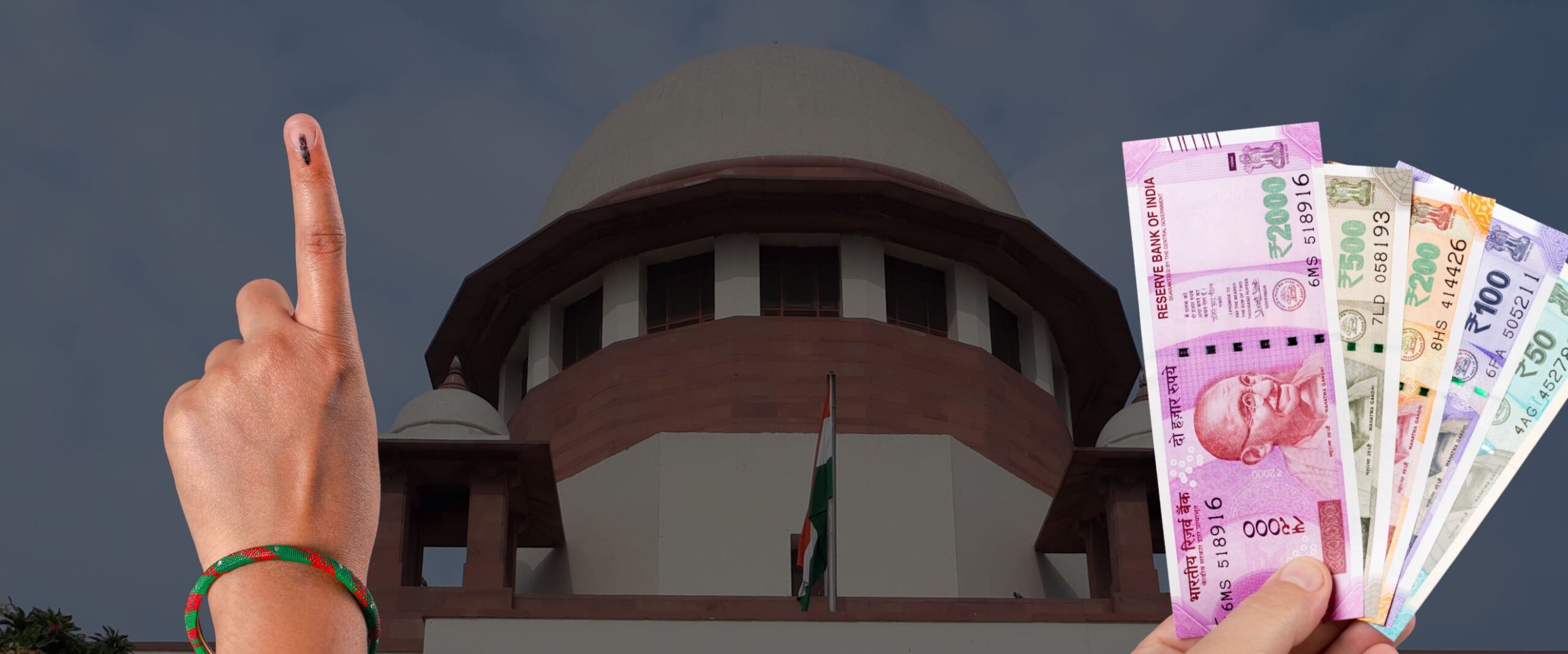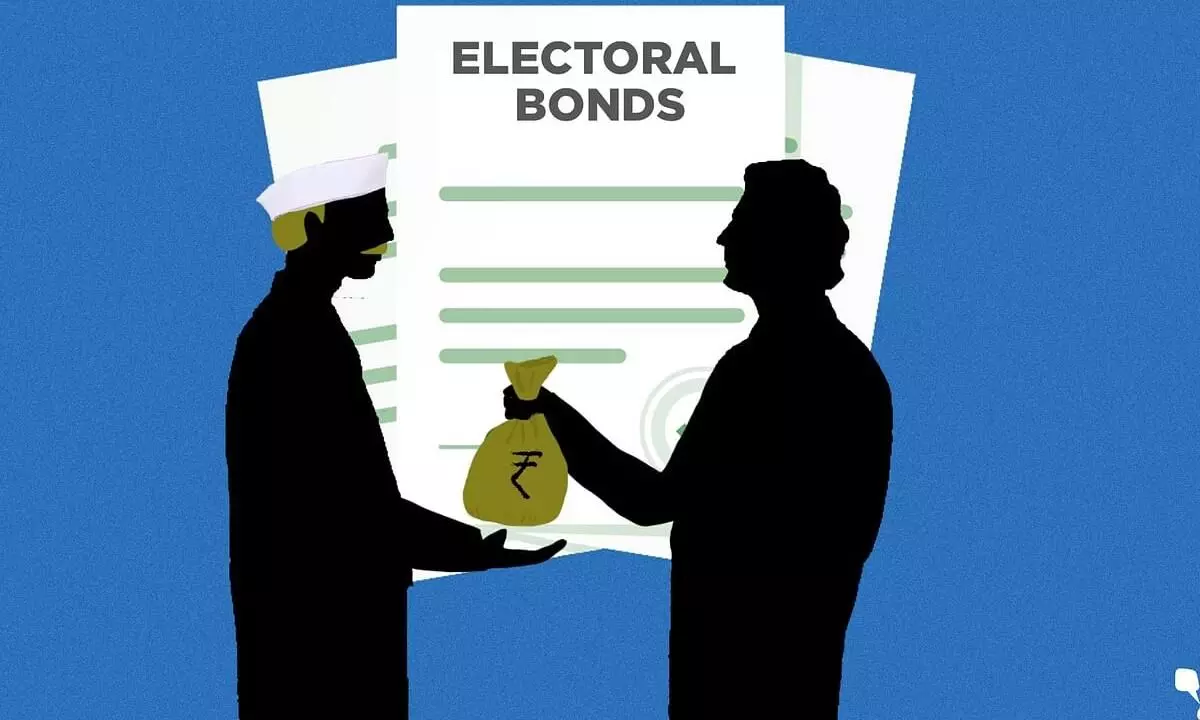Electoral Bonds And Right To Transparency: Attorney General Argues Citizens Have No Right To Know Source Of Political Funding
Attorney General in the Electoral Bonds case talks about the citizen’s Right to Transparency with regard to the source of political funding.

Electoral Bonds And Right To Transparency: Attorney General Argues Citizens Have No Right To Know Source Of Political Funding
The Attorney General of India, R Venkataramani, has sparked a major debate by claiming that citizens do not have a fundamental right to know about the sources of political finance in an essential legal dispute that has the potential to reshape the regulations governing the financing of politics in India. This declaration has been submitted in writing to the Supreme Court one day prior to its scheduled hearing on petitions contesting the Electoral Bond scheme.
Attorney General’s Argument: Citizens’ Right Limited to Specific Information
In a comprehensive four-page submission, Attorney General Venkataramani made the argument that citizens do not have an all-encompassing right to know everything. He drew attention to the fact that while citizens are entitled to know the antecedents of candidates, Article 19(1)(a) of the Constitution fails to grant a general right or expand its scope more than this. He particularly emphasized that information regarding Electoral Bonds—which allows people to donate anonymously to political parties—cannot be considered to be something that is in the public domain. In addition, he said that the scheme is compliant with Article 19(2) of the Constitution, which permits the government to put justifiable limitations on the exercising of one’s fundamental rights.
Supreme Court’s Decision: Constitutional Significance Leads to Constitution Bench
This comes after the Supreme Court decided to assign a five-judge Constitution bench to hear a series of petitions challenging the government’s Electoral Bond scheme. Considering the significance of the constitution as well as its possible influence on the functioning of democracy, the supreme court decided that a thorough investigation was required. On October 31, the case is scheduled to be heard by a bench led by Justice DY Chandrachud.
Petitioners’ Concerns: Transparency and Impact on Democracy
Representing the petitioner NGO Association for Democratic Reforms, advocate Prashant Bhushan vehemently argued that Electoral Bond funding’s anonymous character can encourage corruption. He maintained that the country’s democratic foundations was adversely impacted by the changes implemented by the Finance Acts of 2016 and 2017. These changes, he claimed, had opened up the possibilities to limitless contributions to politicians.

Centre’s Defence: Electoral Bonds as Transparent Political Financing
In stark contrast, the Centre has repeatedly defended the Electoral Bond scheme as a transparent as well as acceptable method of political financial matters. In the opinion of the government, Electoral Bonds provide an organized mechanism for individuals, corporations, businesses, or associations that allows for contributions to political parties without the inclusion of black money or unaccounted funds.
The subsequent development of political financing in India is expected to be shaped by the final outcome of this particular case. In furtherance of deciding the future of the Electoral Bond scheme, the ruling made by the Supreme Court’s Constitution bench will set important precedents on the integrity and transparency of political fundraising. The decision is certain to have significant consequences as well as pave the way for a more open and responsible political system in the entire country.
Attorney General’s Argument: Limited Right to Specific Information
Attorney General Venkataramani made a nuanced argument in which he said that the right to information guaranteed by Article 19(1)(a) of the Constitution only applies to information specifically needed to make an educated decision when voting during elections. He stressed that this right cannot be applied to a wide range of details, particularly when it pertains to raising money for political parties.
Reference to Landmark Judgment and Caution Against Hasty Decisions
Venkataramani cited the Supreme Court’s landmark ruling in the People’s Union for Civil Liberties case in the year 2003, emphasizing the stark distinction between the bigger picture of political finance as well as voters’ right to know a candidate’s previous criminal record, which is relevant for informed voting. He urged the court not to make decisions based on vague constitutional rules as well as emphasized that the Electoral Bond scheme safeguards contributor confidentiality, encourages clean money, as well as executes tax obligations.
The Attorney General emphasized the democratic importance of contributions to political parties, stating that such support is essential for their functioning as well as governance accountability. He contended that the Electoral Bond scheme, that facilitates the transfer of funds via authorized banking channels as well as guarantees tax compliance, represents a departure from widely used unregulated modes of contributions.
Regulatory Framework Within Constitutional Limits
Venkataramani addressed to the petitioners’ questions about constitutionality by asserting that the Electoral Bond scheme is governed by the laws set forth in Article 19(2) of the Constitution. Reasonable limitations on fundamental rights are outlined in this article. He underlined that the structure of the scheme guarantees the separation of powers, relegating the subject matter of evaluating or testing a piece of legislation to deliberations in parliament as well as the public.
Legal experts expect a rigorous as well as in-depth discussion on the delicate balance between citizens’ right to transparency as well as political parties’ ability to operate as the issue comes before a five-judge bench led by the Chief Justice of India. The verdict in this case has the potential to influence both the future of political funding along with the boundaries of citizens’ access to information within India’s democratic framework. The ruling of the court will set a precedent that will have a significant effect on the nation’s democratic values as well as the transparent nature of political financing.
Background: A Long-Drawn Legal Struggle
When the Centre launched the Electoral Bond scheme, which allowed anonymous contributions to political parties, the legal conflict got started. The Finance Acts of 2016 and 2017 both underwent numerous modifications, which encouraged a great deal of opposition. In opposition to these revisions deemed “unconstitutional,” the petitioners—led by the Association for Democratic Reforms (ADR) and Common Cause—alleged that they violated the separation of powers doctrine as well as fundamental rights.
The Electoral Bond scheme’s secrecy is at the very core of the issue. The Communist Party of India (Marxist) as well as ADR’s advocates, Prashant Bhushan and Shadan Farasat, respectively, emphasized that the anonymity goes to a number of levels: donors’ identities are kept secret, donations’ total amounts are concealed, and even shareholders are not informed of their company’s contributions to politics. The petitioners contend that this opacity violates citizens’ right to know as well as encourages corruption in the political process, jeopardizing the very essence of democratic standards.

Electoral Bonds: The Mechanism
The State Bank of India issues Electoral Bonds, which were made possible by the Finance Act as well as the Representation of the People Act. These bonds can be bought through KYC-compliant accounts and come in values that range from ₹1,000 to ₹1 crore. The scheme permits corporations as well as foreign entities to take advantage of a 100% tax exemption, while at the same time maintaining donor anonymity. The Election Commission of India verifies the accounts of political parties that received at least 1% of the total votes in the most recent elections. Bonds can be contributed by donors to any party, which means the party has a period of fifteen days to cash them in.
With a focus on the lack of evidence to support the imposition of restrictions on the issuance of Electoral Bonds, the Supreme Court rejected stay applications in March 2021. However, as an interim measure, the Court ordered the political parties to provide sealed covers that included bond-related receipts to the Election Commission of India. The petitioners’ broader concerns about the scheme’s potential effects on democratic integrity were not addressed by this measure, which had only been designed to temporarily guarantee transparency.
The Imperative of Transparency: Unravelling the Veil of Political Funding
Transparency serves as a guiding light in the democratic maze, illuminating the route toward informed decision-making as well as accountability. As the controversy over political funding, particularly the challenged Electoral Bond scheme, engulfs the country, it is critical to underline that the right to transparency is not only a demand, rather a fundamental requirement for any flourishing democracy.
Informed Decision Making: The Backbone of Democracy
At the foundation of any robust democracy lies the informed citizenry. Voters need to possess comprehensive knowledge with regard to the parties they support, their policies, as well as, more importantly, their funding sources. In this contextual situation, the right to transparency becomes the bedrock based on which citizens make informed judgments regarding the political entities contending for their mandate.
The Electoral Bond scheme, while being shrouded in the garb of confidentiality as well as secrecy, raises important questions about the motives behind shielding details about political contributions. When the sources of funding kept hidden from public scrutiny, it inevitably leads to speculation as well as suspicion. What is being kept concealed, and why? The lack of transparency with regard to political financing raises uncomfortable queries, suggesting at potential clandestine dealings that are shielded from the public eye.
Trust forms the foundation of any democratic system. When political funding is shrouded in secrecy, it loses the trust between the electorate as well as their elected representatives. A lack of transparency leads to skepticism, casting a shadow of doubt on the reliability and integrity of the democratic process as a whole. Citizens have the right to know who funds the political parties they are deciding to vote for, in order to ensure that these parties remain accountable as well as free from undue influence.

The Warning Signs: Hidden Agendas and Democratic Erosion
Political funding secrecy could inadvertently be interpreted as an attempt to keep something substantially of greater significance from the public undisclosed. It prompts concerns regarding corporate interests, covert goals, and even quid pro quo agreements that can jeopardize the country’s democracy. Openness and transparency are essential to a democracy, thus any effort to cover up these values ought to be taken seriously.
In the face of growing concerns, the call for change gets louder. Maintaining the principles of democracy requires a transparent process of political funding. In order to make decisions which are consistent with their values and viewpoints, citizens have a right to know who is funding the political parties that they are asked to support. It is only when the process is free from hidden objectives and is open, clear, as well as transparent can a democracy thrive.
It is impossible to overestimate the significance of the right to transparency as the country watches the court arguments play out. It is an inherent democratic duty, not just a request for it. Citizens must demand transparency and accountability given that the act of hiding political funds casts doubt on the democratic process’s integrity. The right to transparency must triumph in a country that values its democratic spirit in order to preserve the essence of democracy while keeping it untainted, unalterable, and dedicated to the people it serves.




